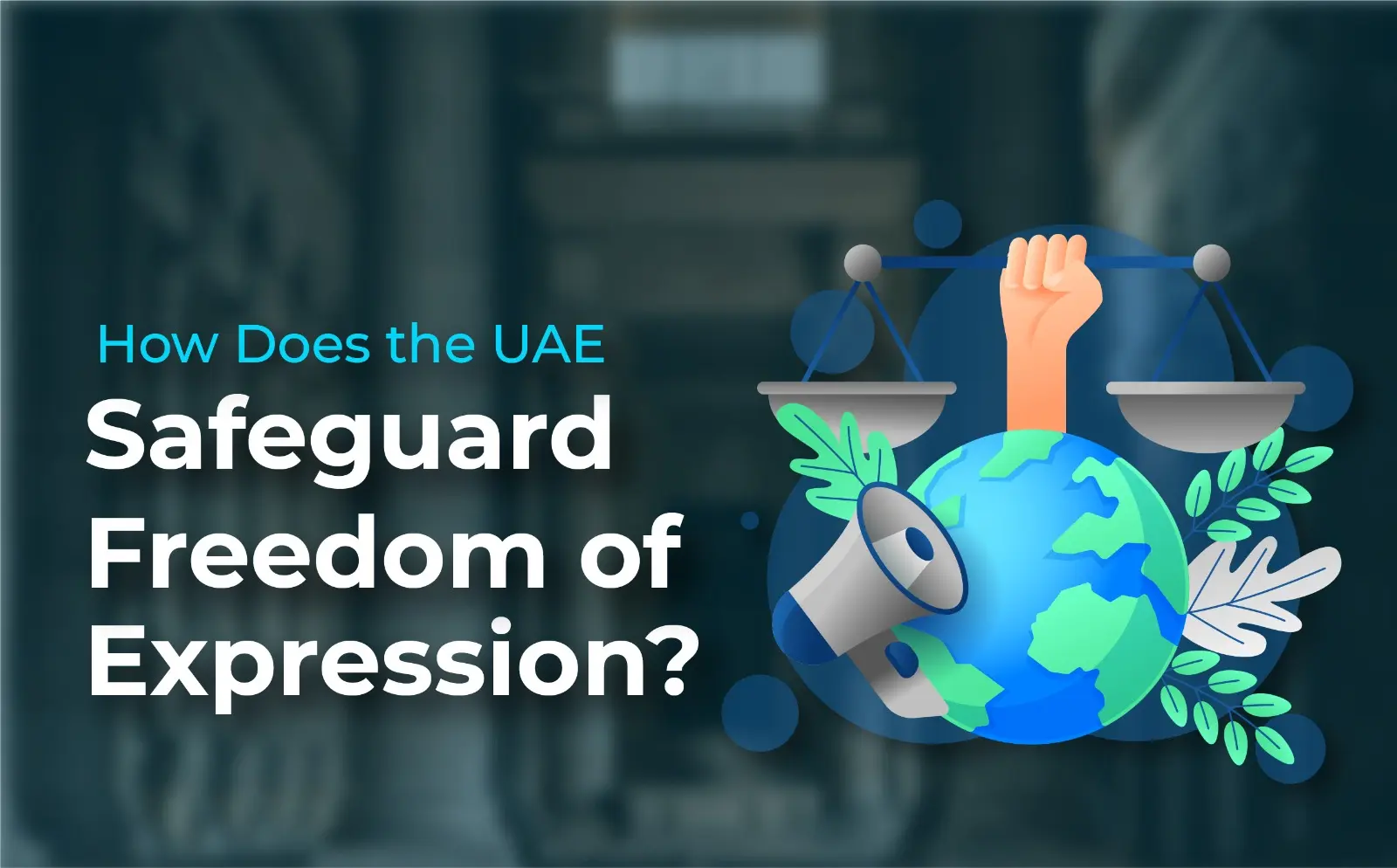Introduction
Freedom of expression is one of the fundamental human rights and serves as the cornerstone upon which free and advanced societies are built. It ensures that every individual has the right to freely express their opinions and thoughts, playing a pivotal role in shaping diverse and beneficial perspectives within a community. In this article, we will delve into the significance of freedom of expression as an essential human right and how it is protected under the constitutional laws of the United Arab Emirates (UAE).
Freedom of Expression: A Fundamental Human Right
Freedom of expression is a basic human right, as affirmed by Article 19 of the Universal Declaration of Human Rights, adopted on December 10, 1948. Everyone has the right to freedom of opinion and expression, which includes the freedom to hold opinions without interference and to seek, receive, and impart information and ideas through any media regardless of geographical boundaries.
Protection of Press Freedom: Constitutional Laws in the UAE
In the UAE, constitutional and legal human rights ensure freedom of expression and the right of the press to publish news. This right, both constitutionally and legally guaranteed, is articulated in Article 30 of the UAE’s constitution, which states: “Freedom of opinion and its expression in speech, writing, and other means of expression are guaranteed within the limits of the law.” The freedom of expression and the right of the press to publish news is a constitutionally and legally guaranteed right, provided that this right is not misused beyond the boundaries set by the law to protect the rights of others.
Journalists' Responsibilities: Striking a Balance Between Freedom and Legal Obligations
While journalists enjoy the right to freedom of expression and the dissemination of news, they are also bound by specific legal and ethical responsibilities. This is underlined by Articles 80 and 84 of the Federal Law No. 15 of 1980 concerning Publications, which prohibit the publication of false, fabricated, or wrongly attributed news. It also forbids any defamation or slander against public servants, individuals with a public representation role, or those engaged in public service. Article 79 of the same law protects individuals’ privacy and bars the publication of news, images, or comments related to someone’s private or family life, even if true, if such publication could harm the individual in question.
Moreover, the Penal Code’s Article 372 penalizes anyone who publicly, including through publication in newspapers, attributes to another a matter that subjects them to punishment or contempt. Article 373 penalizes anyone who publicly defames another person in a way that tarnishes their honor or reputation, without necessarily attributing a specific incident to the individual. This means that a journalist’s freedom and right to publish news and comments are governed by legal principles and rules that were necessitated by the imperative to respect others’ rights. This includes not attributing demeaning or reputation-damaging events to someone, or not defaming or maligning them.
The permission to publish news in newspapers is conditional. The news must be accurate, socially relevant, presented objectively, and intended in good faith to serve the public interest. Not explicitly naming the person involved does not absolve the publisher or editor of responsibility, especially if the individual can be implicitly identified from the news or article’s context. This is a principle the Dubai Court of Cassation confirmed in its rulings dated 26/9/2010, in appeal numbers 91/2010 (Civil Appeal) and 104/2010 (Civil Appeal).
Mr. Ahmed Saber & Ms. Amira Saqr
Mr. Ahmed Saber, the Head of the Litigation Department and an experienced legal expert, emphasizes that these rights require journalists and media outlets to adhere to the legal and ethical responsibilities associated with them. In this regard, Mr. Ahmed Saber refers to the legal provisions in the United Arab Emirates that define the responsibilities of journalists and restrict freedom of expression regarding false and defamatory news. He adds that these laws protect the rights of individuals and institutions and aim to preserve their reputation and dignity.
In conclusion, Mr. Ahmed Saber underscores the importance of adhering to the constitutional laws in the UAE and emphasizes that everyone, whether they are journalists or citizens, should exercise their rights and freedoms with caution and respect for the law and the rights of others, with the goal of promoting open and prosperous societies.
On the other hand, Ms. Amira Saqr, a Pleading lawyer and an expert in intellectual property accredited by the Ministry of Justice, highlights the importance of striking a balance between the right to freedom of expression and the legal responsibilities that come with it. As an Advocate in all federal courts and courts of the Emirate of Dubai at all levels, Ms. Amira Saqr expresses her view that freedom of expression is a fundamental right, but it must be exercised with caution and respect for the law and the rights of individuals and institutions.
Amira Saqr emphasizes the significance of fostering open and thriving societies by exercising freedom with caution and respect for the law and human rights. She stresses that all individuals, whether lawyers or citizens, should be aware of their rights and responsibilities in a society that constantly seeks to achieve a balance between freedom and responsibility.
In Conclusion
Freedom of expression and the right of the press to disseminate news are cornerstones of modern democracies. However, these freedoms come with significant responsibilities. Journalists and media outlets must adhere to both legal and ethical principles and rules to strike a balance between freedom of expression and the rights of others. In the UAE, constitutional laws are robust and clear, aiming to achieve this equilibrium. Everyone, be it journalists or citizens, must be aware of their rights and responsibilities, constantly striving to foster open and thriving societies while exercising their freedoms with caution, respect for the law, and consideration for others.

